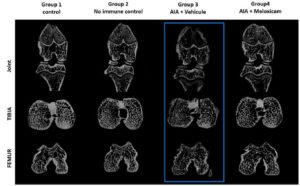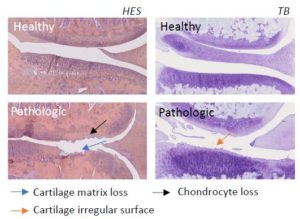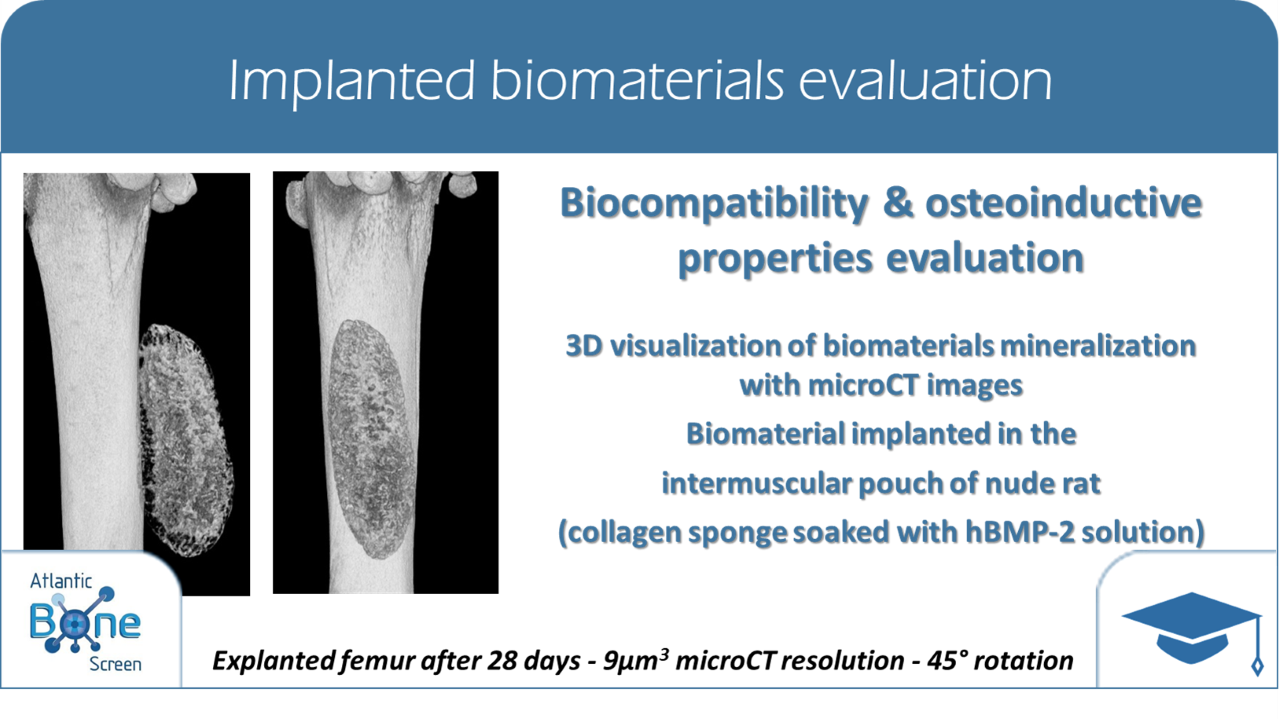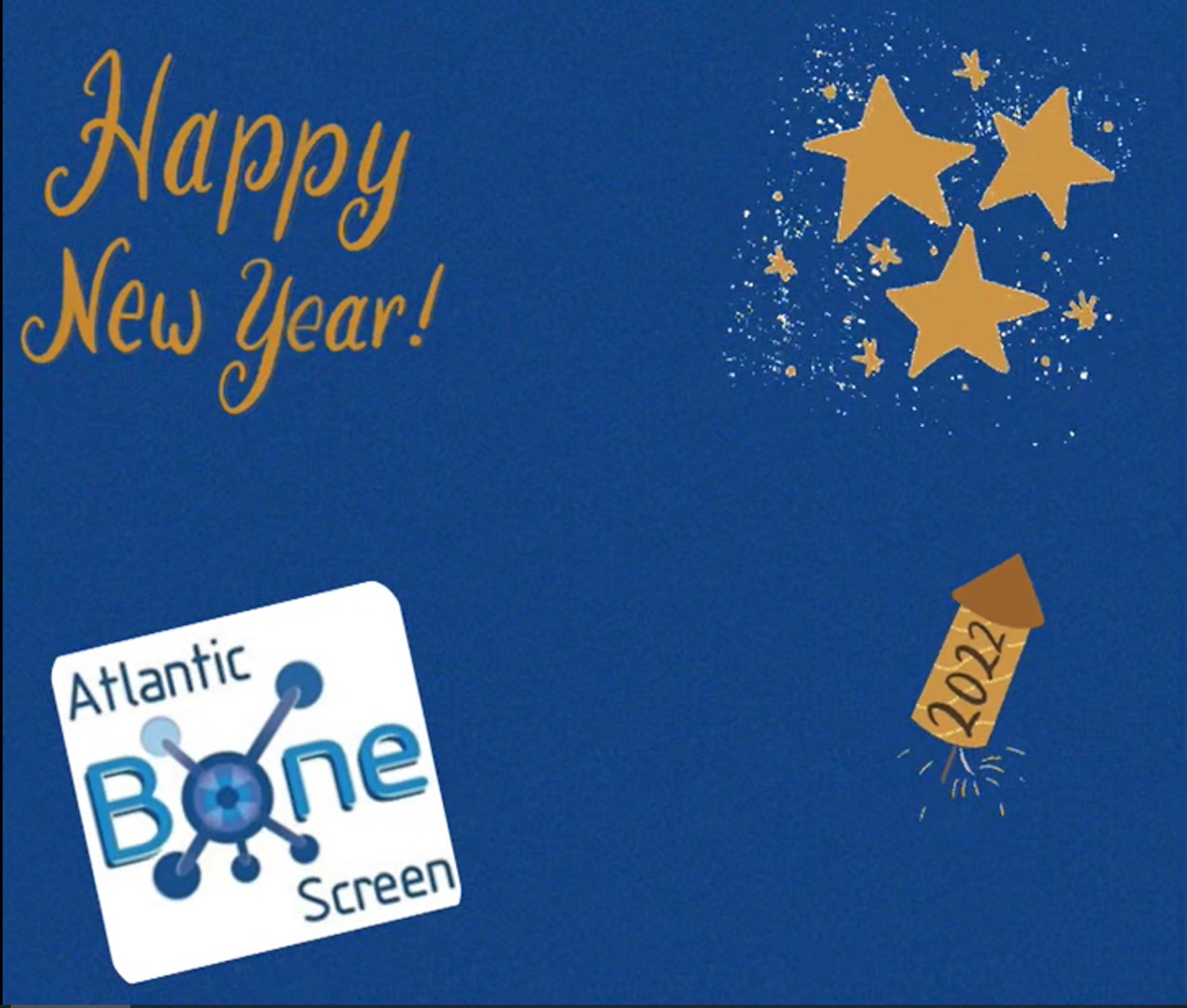Atlantic Bone Screen provides his Customers and Partners services for the non-clinical evaluation of their compounds. Atlantic Bone Screen benefits from its own animal facility to provide in-vivo assays to its Customers. Models are chosen and validated by our Scientific Team and with our expert consultants and pathologists network. Either standard or tailor made models can be proposed for non tumoral diseases.
Atlantic Bone Screen provides non-clinical animal models miming human cartilage pathologies by testing drug candidates, biomaterials and nutraceuticals.
Among these pathologies, osteo-arthritis, mono-arthritis and rheumatoid arthritis are pathologies resulting in cartilage degradation and severe pain for the patients. Depending on the model, the duration and the severity of the cartilage degradation, animals pain can differ and a strong attention is led on the ethical management of the animals.
EXPERIMENTAL ANIMAL MODELS – ARTHRITIS – CHEMICAL INDUCTION
CIA, Collagen Induced Arthritis – mice
Disease is induced in mice with one injection of collagen type II in complete Freund´s adjuvant (CFA). A “boost” injection with collagen in Incomplete Freund´s adjuvant (IFA) is given day 21 to enhance disease development (in-vivo part managed with a Partner).
AIA, mBSA – rat
Rats are first sensitized twice with 1 week interval with an emulsion of mBSA (methylated bovine serum albumin) in Freund’s complete adjuvant, and then arthritis is induced by intra-articular injection of mBSA in the right or the left knee.
EXPERIMENTAL MODELS – Evaluated parameters
In vivo:
Follow up of clinical signs (lameness), pain…
Measure of the swelling of the injected knee.
Micro-CT:
Tibia epiphyseal trabecular bone volume fraction (BV/TV) – Tibia epiphyseal bone mineral density (BMD) – Tibia epiphyseal trabecular open porosity.

Histology :
Hematoxylin-Eosin-Safran (HES) and toluidine blue (TB) staining to score the Joint cavity, synovial membrane and the fibrous layer of the articular capsule.
EXPERIMENTAL ANIMAL MODELS – OSTEO-ARTHRITIS – CHEMICAL INDUCTION
MIA – rat
Rats receive monoiodoacetate intra-articular injection in one knee joint. In these conditions, first signs of cartilage damages are seen 2 weeks after injection.
Collagenase or Papaïn – mice
Collagenase and Papaïn models can also be proposed as those chemicals interfere with cartilage; induction is done by intra-articular injection in knee joint.
EXPERIMENTAL ANIMAL MODELS – OSTEO-ARTHRITIS – SURGICAL INDUCTION
ACLT/MNX – rat
Unilateral osteoarthritis is surgically induced by transection of anterior cruciate ligament and resection of a third of the medial meniscus. In these conditions, first signs of cartilage damages are seen 6 weeks after surgery.
ACLT – rabbit
Unilateral osteoarthritis can also be performed by transection of anterior cruciate ligament on rabbits.
EVALUATED PARAMETERS – OSTEO-ARTHRITIS
In vivo:
Follow up of clinical signs (lameness), pain…
Micro-CT:
Scoring of sub-chondral bone degradation and Osteophytes formation
Histology :
Hematoxylin-Eosin-Safran (HES) and toluidine blue (TB) staining to score the extent of articular cartilage damages, subchondral bone degradation and osteophytes formation

EXPERIMENTAL MODELS – NEW MODEL
Atlantic Bone Screen develops tailor-made animal models under request in order to match its customers’ needs and constraints. For some animal models, Atlantic Bone Screen works with its experts’ network in order to propose his customers the largest range of models.
•Rodent expertise and other animals with approved partners – In-house veterinary consultant
For these studies, Atlantic Bone Screen can rely on highly qualified scientists and technicians and on a large range of analysis techniques for biomarker analysis, imaging analysis and histological services.



